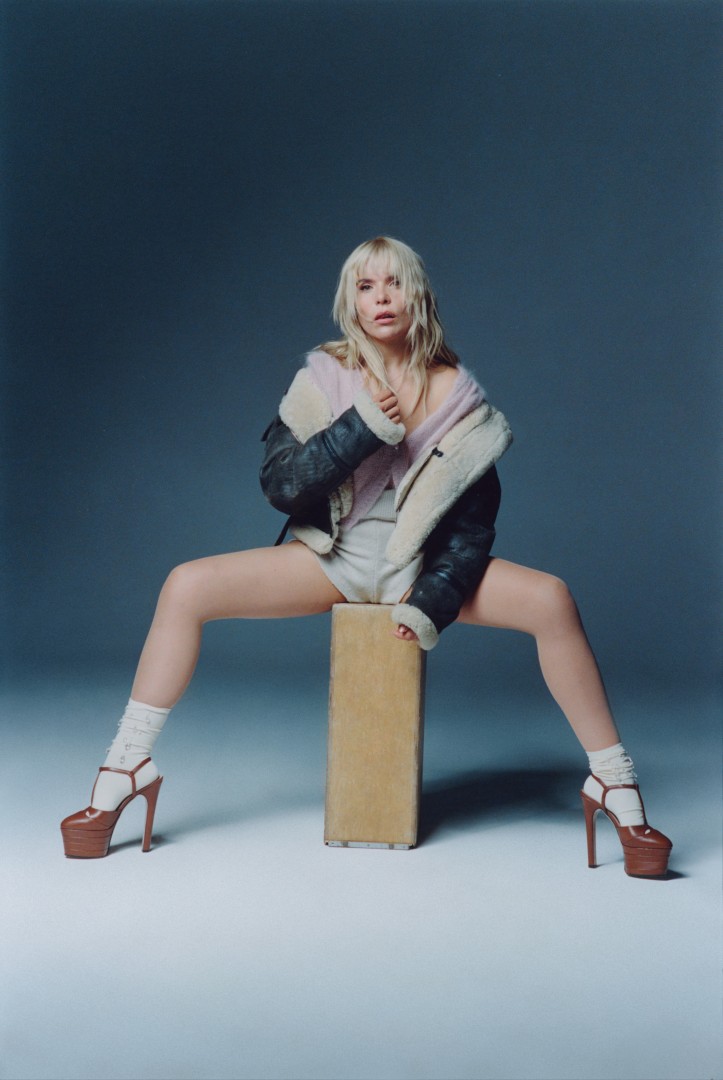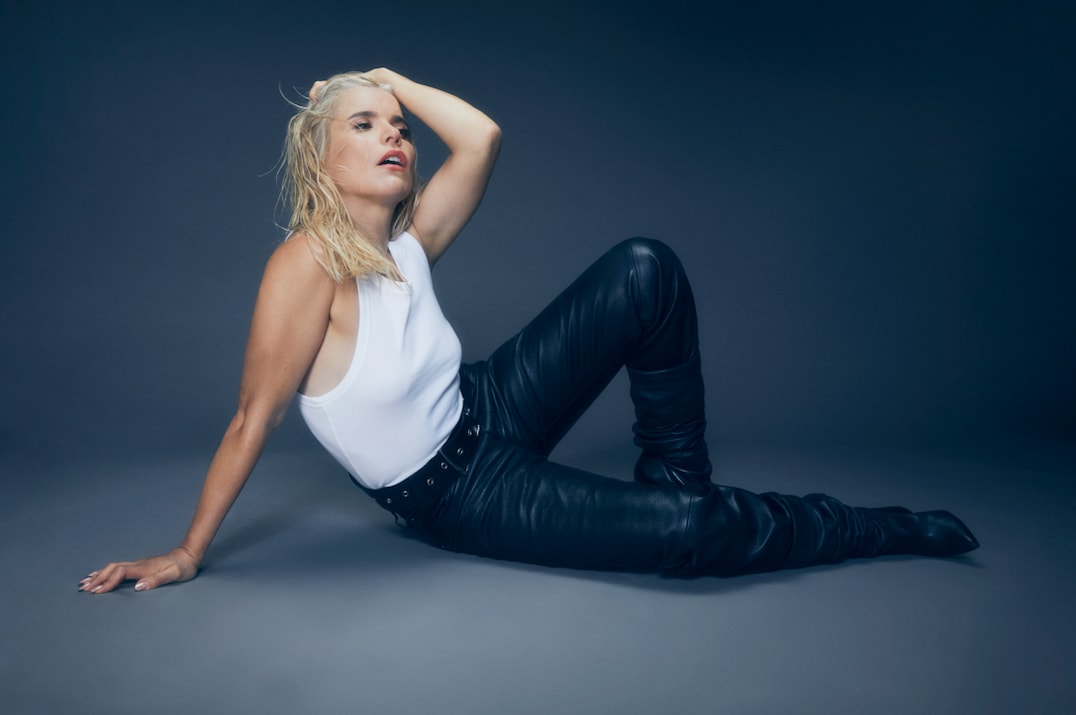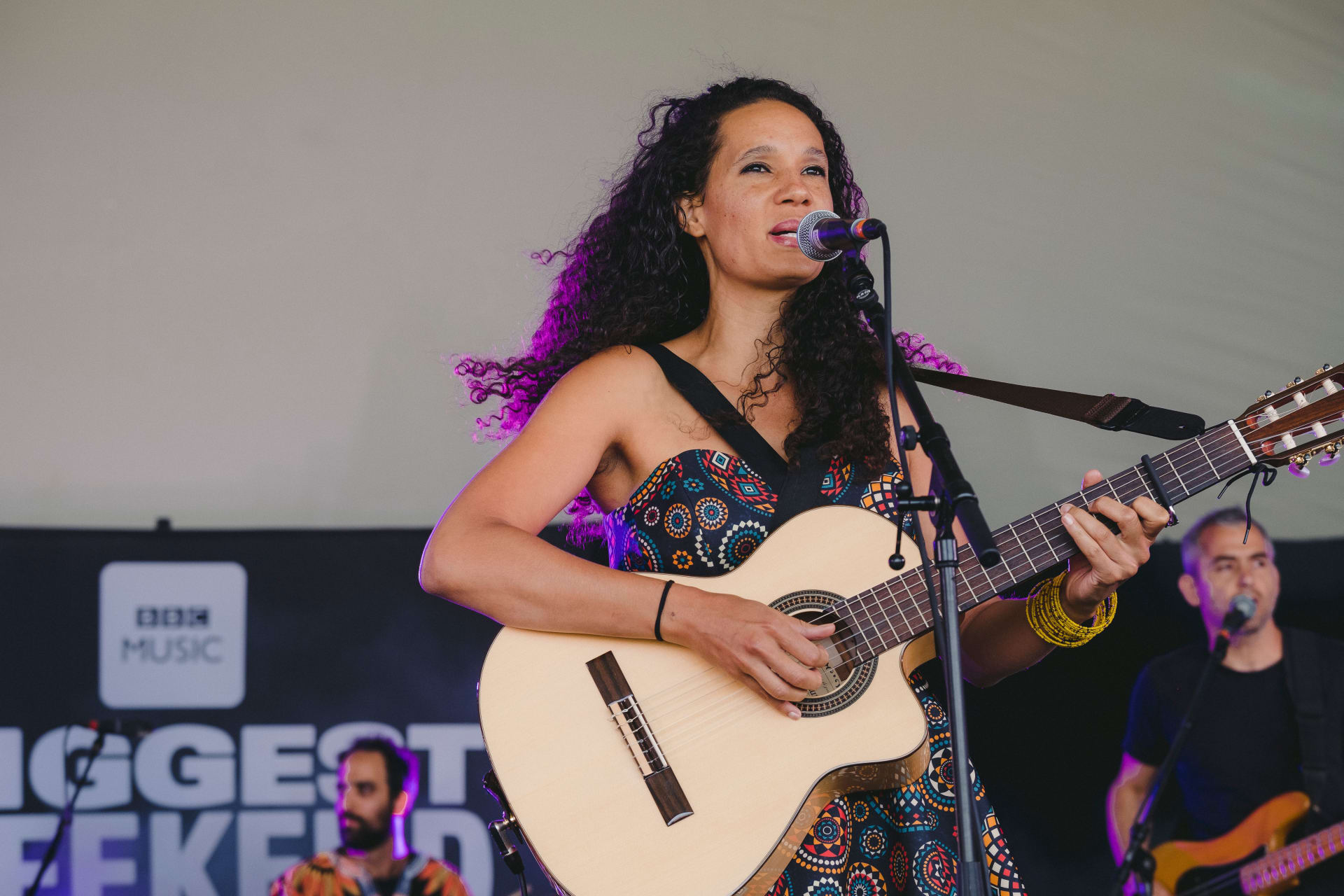It’s strange to be interviewing a household name at the best of times, but when you’ve been listening to that person describe in detail the raw grief of a recent breakup – as Paloma Faith has on her latest album – the feeling is even more acute. It also makes her more relatable, and so our conversation (arranged to discuss her upcoming UK tour) ended up meandering around the common tropes of womanhood: clothes, kids, misogyny and mothers.
The album, The Glorification of Sadness, charts Paloma’s split from her partner and father of her two children. If you’ve heard How You Leave a Man and Bad Woman you’ll know as a musician she’s on dazzling form. It not only lifts the lid on her emotional state, but is also a ferocious, searing and phenomenally catchy feminist roar – “I’m not a good girl, I’m a bad woman”. A concept album in which the stages of grief are presented in musical form for our consumption. There’s a paradox here and it’s a fact she is only too well aware of so I’m somewhat relieved when she alludes to it before I have to think of a polite way of raising the question: “Every artist’s pain is for sale, it feels quite sinister to turn your sadness into a commodity but it’s reassuring that other people may feel you gave them words to articulate their feelings”.
 Her speaking voice so immediately distinctive, and it ebbs and flows, receding to a murmur when (I suspect) I ask a question she doesn’t want to engage with; rising to a staccato, articulate flow when she is more interested. I tell her I think the album is a triumph which gets polite thanks but when I try to draw her on my theory that age allows her to access her anger in a way that, say, twenty-something Winehouse was unable to on Back to Black (another great break-up album) I don’t get much back. So I move on to how it feels to put such personal content out into the world, and she readily admits “doing the album was cathartic but this stage [the press interviews] is gruelling. It's a bit difficult going round and round talking about my breakup with everyone, so at times I feel emotionally drained”.
Her speaking voice so immediately distinctive, and it ebbs and flows, receding to a murmur when (I suspect) I ask a question she doesn’t want to engage with; rising to a staccato, articulate flow when she is more interested. I tell her I think the album is a triumph which gets polite thanks but when I try to draw her on my theory that age allows her to access her anger in a way that, say, twenty-something Winehouse was unable to on Back to Black (another great break-up album) I don’t get much back. So I move on to how it feels to put such personal content out into the world, and she readily admits “doing the album was cathartic but this stage [the press interviews] is gruelling. It's a bit difficult going round and round talking about my breakup with everyone, so at times I feel emotionally drained”.
I’m not surprised, and listening to the album in one hit, song by song, made me reflect on the fact that true creative expression is always a form of autobiography. “I didn’t really have a creative vision, I was so depressed and sad, that I just wrote what came out and it all made sense after a period of reflection. All my albums are personal: my personal life is the only thing that influences my music.” So I’m guessing that any criticism would touch a particularly vulnerable nerve? “Yes, because I feel emotionally attached. If people say it's shit, and I’m talking about my life experience, that can feel a bit hurtful. I tend not to look at the comments.”
But it’s not just comments. A few days before our conversation the Government released the findings of their Misogyny in Music enquiry which is part of their work into preventing violence against girls and women. The report found that misogyny and discrimination is ‘endemic’ in the industry. Has that been your experience? “It’s very difficult for me to be able to say but there are things that happen in the industry which I suspect is because I’m a woman. One of which is I suspect people think I am less marketable or less sexy than before I had children. I think record companies lose attention on female artists who are getting older, and I have felt a distinct shift in the hands-on approach I’d experienced earlier on in my career. But I don’t know if that’s because I’m a woman or not. Is it because I’m older that that they aren’t investing so much in marketing or is it a general lack of investment?”. At which point she pulls me up on the fact that I apologised before raising my earlier question about aging allowing women to access their anger, pointing out that her childhood, being brought up in Hackney by a single mother in the 80s made her “woke before woke” and goes on to acknowledge that the recent Grammys saw a significant number those over 40 winning awards (although I suspect that once you factor 80-year old Joni Mitchell (Best Folk Album) and nonagenarian Bobby Rush (Best Traditional Blues Album) into the statistics it’s going to have a big impact on the mean).
 Grammys aside, there is no doubt that age, gender and motherhood have jointly and severally impacted Paloma, as they impact us all. I’m heartened to hear her declare her feminism without qualification, although not without question: “In many ways feminism has let us down. it started and it’s not finished, we’re abandoned halfway through with a patriarchal idea of feminism. It’s not equality – we’re burning out, we’re doing too much. Women have been given the concept that we can have it all, but we can’t. I can’t accept every single opportunity which comes my way. But, in a way I think there’s also been great positive impact in that I’m much more resilient. My body’s really strong haven given birth twice and endured all of that. A tour feels less taxing than it did before. I’ve always been the executive producer on all my albums but this time I really dug my heels in to get the credit. I’m fuelled by ambition. I think I have this black hole, a void that exists in me which means that nothing I do is ever enough – and I don’t want to be beaten by it. I still haven’t achieved what I want to achieve so I keep going.”
Grammys aside, there is no doubt that age, gender and motherhood have jointly and severally impacted Paloma, as they impact us all. I’m heartened to hear her declare her feminism without qualification, although not without question: “In many ways feminism has let us down. it started and it’s not finished, we’re abandoned halfway through with a patriarchal idea of feminism. It’s not equality – we’re burning out, we’re doing too much. Women have been given the concept that we can have it all, but we can’t. I can’t accept every single opportunity which comes my way. But, in a way I think there’s also been great positive impact in that I’m much more resilient. My body’s really strong haven given birth twice and endured all of that. A tour feels less taxing than it did before. I’ve always been the executive producer on all my albums but this time I really dug my heels in to get the credit. I’m fuelled by ambition. I think I have this black hole, a void that exists in me which means that nothing I do is ever enough – and I don’t want to be beaten by it. I still haven’t achieved what I want to achieve so I keep going.”
She’s about to embark on a three-month tour of the UK, starting in April in Reading before zigzagging across the UK, including the New Theatre in Oxford on 14 May. I wonder the extent to which her degree in contemporary dance and subsequent Masters in theatre directing feeds into her stage persona. “I’m really aware of how much body looks on stage, the way I face, the way I perform. I’m hyper trained in that in a way that people who haven’t got that training are. I’m a performer. Some musicians are super-dooper talented or amazing vocalists or whatever, but I would say first and foremost I’m a performer.”
And of course, there are her famously fabulous costumes which brings me on to the power of clothing. The first track on The Glorification of Sadness asks, ‘will you still love me in my sweatpants?’ and on track three she declares, ‘I am a woman, a dangerous powerful woman…I’m a god in a dress”, which brings me to the album cover in which she’s sporting what I’m guessing is a wig of wild brown curls. She’s too aware of the semiotics of fashion for this not to have meaning so I take a gamble and suggest she’s honouring her (brunette) mother here. She clearly finds this amusing and throughout our conversation she’s spoken not only of her mother, but the other strong female family members who were a constant presence in her life as she grew up. I also wonder if the dark curls represent a switch-up, like Madonna in her game changing Like a Prayer video, and I’m gratified when she confirms that the crucifix she wears in the Bad Woman video is, indeed, a nod to Madonna.
It forms a stark contrast with glossy blonde Paloma in the video of How You Leave a Man: all eyelashes and cheekbones, writhing about in nude-toned PVC. “It’s like the introduction to Paloma’s MILF phase – I’m saying that with gritted teeth and extreme insecurity. I’m being provocative and attractive in the car but at the end I’m still a mum and even if I wanted to leave their dad he’s still with us even if you can’t see him.” How is that relationship working now? “It’s better: no expectations, no resentment”.
Our time is running out. Is there anything you want to say about your upcoming show in Oxford? “Revise your favourite old Paloma Faith songs and learn the lyrics to my new ones”. Bravo Paloma. She knows how to give the people what they want. Not such a bad woman after all, then.
Image credit: Yan Wasiuchnik
Paloma Faith will be live at New Theatre Oxford on Tue 14 May 2024









